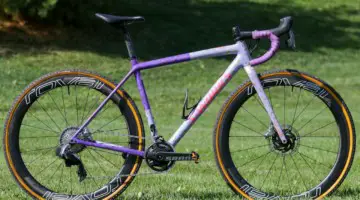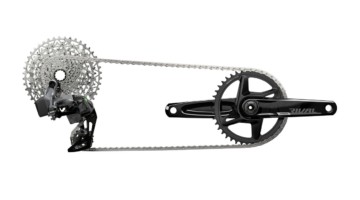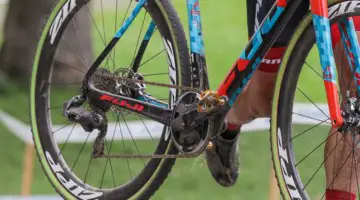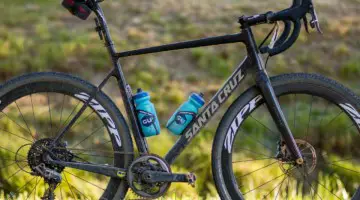Rival 22 Derailleurs
The derailleurs differ in weight from the lightest version, Red, by just over an ounce for the rear mech and less than half an ounce for the front derailleur. That would mean less of a difference compared with Force derailleurs. Again, less carbon, and fewer titanium screws contributes to the weight gain. The Rival 22 Rear derailleur has a two-tone finish and looks more polished than the previous all-black Rival 10-speed version. It only gains four grams compared with the Force version, yet saves you $46. SRAM components are all cross-compatible, so with any DoubleTap lever you should get the same quick, crisp shifts. We have the WiFli medium cage version for review to work with the wide range SRAM 11-32 cassette.
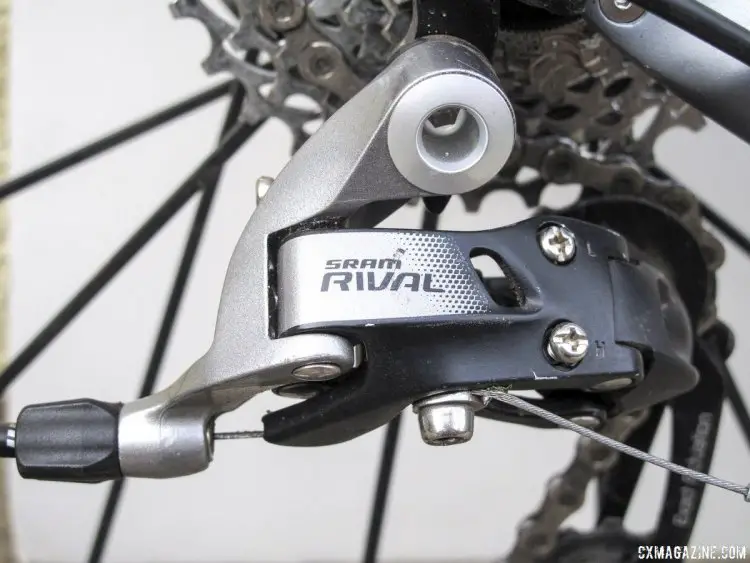
The Rival 22 rear derailleur. © Cyclocross Magazine
SRAM did a great job with the rear shifting, partly from the cable pull ratio of the DoubleTap system, something SRAM calls exact actuation, and the crisp, short lever throw of the DoubleTap lever mechanism itself. For mechanical rear shifting it requires a short lever throw with loud tactile feedback once adjusted. The rear derailleur seems to always shift without falter up or down. Be careful to set it up correctly, and remain cognizant when you get to your lowest gear or you might end up with an unwanted upshift.
The Rival 22 front derailleur differs from Force 22 only in finish. The shape of the cage and swing arm, as well as the weight, is identical. The Rival also utilizes the proven Yaw technology, where the cage not only swings laterally, but has an angular movement to align the cage better with the rear cogs regardless of which chainring you’re in. If you don’t mind less flash, you can save the $24 compared to Force.
Front shifting with YAW technology is fast, again likely from the cable pull ratio and chainring design more than the rotation of the front derailleur cage itself. Indeed, no trim is required if it’s set up correctly, and that’s not a hard thing to do at all. The lack of trim requirement means one throw of the lever sets you into your larger chainring, taking your mind off that one detail.
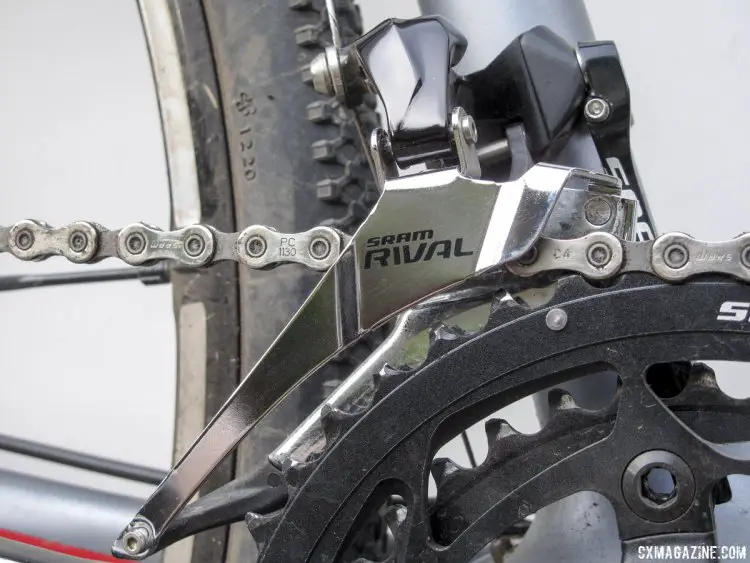
The Rival 22 front derailleur. © Cyclocross Magazine
Again, in use, there is no perceivable difference in accuracy or speed of the shifts, either up or down, compared to the Rival 22’s more expensive counterparts. The Yaw front derailleur is arguably the best mechanical front derailleur out there today, offering fast and accurate shifts with easy setup, and it eliminates the need for front derailleur trim as you shift across the entire cassette. The weight difference between the Rival 22 components is minimal, yet the cost is less than half of the Red components. It remains to be seen how the durability will differ, but so far, so good.

























